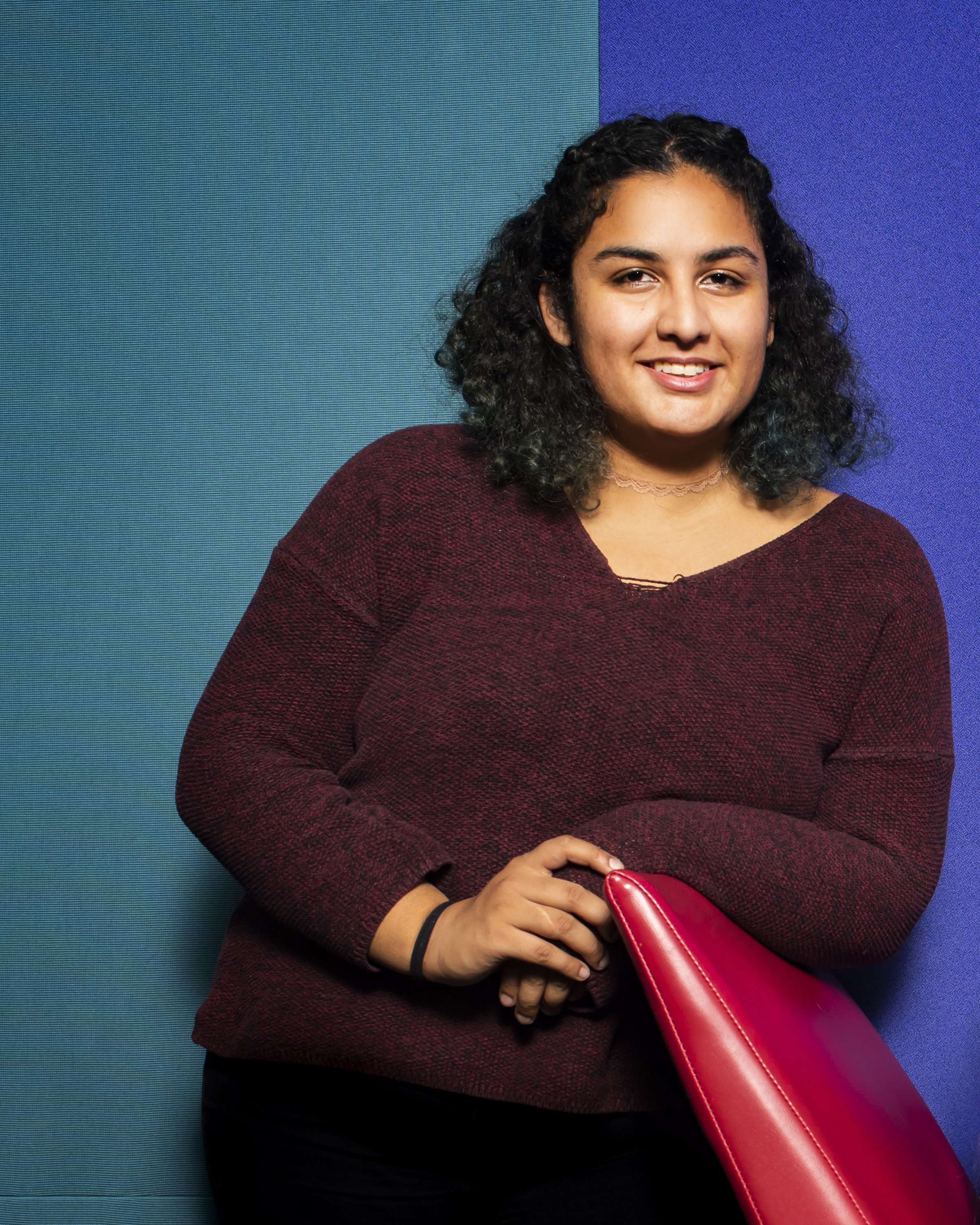Bajpai Wins 2019 K&L Gates Prize Graduating Senior Discovered Her Passion for Teaching at SCS
Byron SpiceThursday, May 9, 2019Print this page.

Tanvi Bajpai, who came to Carnegie Mellon University to become a software engineer and discovered a passion for teaching in the process, will receive the 2019 K&L Gates Prize.
The $5,000 prize, supported by the K&L Gates Endowment for Ethics and Computational Technologies, recognizes a graduating senior who has best inspired fellow students at the university to love learning through a combination of intellect, high scholarly achievement, engagement with others and character.
"I was very surprised to get the award," said Bajpai, who is heading to the University of Illinois Urbana-Champaign this fall to pursue a Ph.D. in theoretical computer science. "Honestly, it just seemed that I did what I had a passion to do. If that made an impact, that's great."
"It has never been about grades for Tanvi," said Anil Ada, assistant teaching professor in the Computer Science Department and Bajpai's academic advisor. "She cares deeply about research as well as her community. And she is the rare talent who will positively influence the culture of the environment she is in," Ada wrote in nominating her for the prize.
Notably, Bajpai is the only undergraduate to serve on the search committee for the new SCS dean. She also won the Mark Stehlik Introductory and Service Teaching Award, a 2018 Mark Stehlik Alumni Undergraduate Impact Scholarship, and a Carnegie Mellon Women's Association scholarship in recognition of her commitment to the advancement of women in SCS.
Growing up in Princeton Junction, New Jersey, Bajpai developed a love of math and, through a summer program for high school students, a fascination with algorithmic and combinatorial thinking. Her college search gravitated to Carnegie Mellon.
"CMU was one of the few places where discrete math and theory were taught early on," she recalled. Between that, CMU's strength in machine learning and SCS's relatively high female enrollment, "CMU sold itself very easily."
Her initial plans to become a software engineer in industry changed after becoming a teaching assistant for Teaching Professor John Mackey's course on mathematical foundations of computer science. She realized she loved teaching and, again, learned to appreciate the uniqueness of SCS — in this case, its use of undergraduate TAs.
"I don't think I would have discovered my love for teaching as soon as I did anywhere else," she said.
She initially was the only female TA for Mackey's class, which is taken by all computer science majors. After becoming head TA, however, she worked to erase the gender gap; by last fall, half of the course's TAs were women.
"Tanvi is a very talented teacher," Ada said. "She has an amazing power to tell stories and get people to listen to her." As a TA, Bajpai organized "conceptual" office hours, in which students are not allowed to ask any homework questions. "She has like 50 students come to these conceptual office hours, which is quite extraordinary," Ada noted.
She also has been active in research since her sophomore year, approaching Ramamoorthi Ravi, Zoltners Professor of Operations Research in the Tepper School of Business, after auditing his doctoral course in combinatorial optimization. He started her off on defining a new measure of diversity of recommendations, which she was quick to grasp, and she extended the work of a doctoral student. Ravi and Bajpai have submitted a paper for publication on the topic.
"Her research prowess, intellectual curiosity and inspiration, as well as her socially conscious engagement, make her an ideal candidate for the K&L Gates Prize," Ravi wrote in his nomination. And she clearly inspires her fellow students, he added, noting several computer science students came to know his course materials just from her audit of his course.
Carol Frieze, director of Women @ SCS and SCS4ALL, said Bajpai has been a leader in making women an integral part of the computer science student culture.
"She has designed and created programs aimed at improving inclusion and diversity, she has sustained these efforts, and, what is so important, she has trained younger students to keep up the good work after she graduates from Carnegie Mellon," Frieze said. "The fact that she has sustained her extracurricular efforts as she prepares to head to graduate school is truly impressive."
Bajpai said the large number of women students at SCS, compared with other computer science programs, was important to her in selecting the school and she grew to appreciate the atmosphere even more after a summer internship with a leading tech company. When she realized she wasn't getting as many assignments as the male interns, she complained to the recruiter, who suggested that her experience at Carnegie Mellon had given her unreasonable expectations.
"She said, 'Well, Carnegie Mellon is abnormal,'" Bajpai remembered. "SCS is a very special place."
Byron Spice | 412-268-9068 | bspice@cs.cmu.edu
